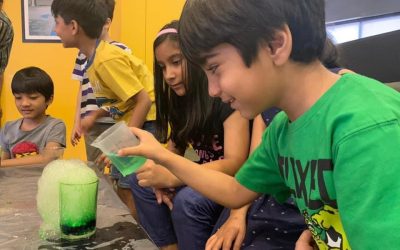STEM (Science, Technology, Engineering, and Mathematics) education can play an important role in helping young kids in Pakistan in many ways, including:
- Providing access to quality education: STEM education can provide access to quality education, particularly for children living in under-resourced or remote areas. By using technology to deliver STEM education, such as online learning platforms, children can access high-quality educational resources regardless of their location.
- Developing critical thinking skills: STEM education emphasizes critical thinking, problem-solving, and analytical skills, which are essential for success in any field. In Pakistan, where there is a shortage of critical thinkers and problem-solvers, STEM education can help young children to develop these skills early on and prepare them for a wide range of challenges and opportunities in their personal and professional lives.
- Bridging the skills gap: Pakistan has a significant skills gap in many STEM-related fields. STEM education can help to bridge this gap by preparing young children with the skills and knowledge they need to succeed in STEM-related careers, such as coding, engineering, and data analysis.
- Fostering innovation and entrepreneurship: STEM education can foster innovation and entrepreneurship by providing children with opportunities to design, build, and create their own solutions to problems. This can help to develop a culture of innovation in Pakistan and encourage children to become entrepreneurs and job creators.
- Improving economic development: STEM education can help to improve economic development in Pakistan by producing a more skilled and competitive workforce. By preparing young children for the jobs of the future, STEM education can help to attract foreign investment and stimulate economic growth.
- Addressing real-world challenges: Pakistan faces many critical challenges, such as climate change, energy security, and food security. STEM education can help children to develop an understanding of these challenges and develop the skills and knowledge needed to address them. This can help to foster a sense of social responsibility and encourage children to become engaged citizens.
- Advancing research and development: STEM education can also help to advance research and development in Pakistan. By encouraging children to pursue careers in STEM-related fields, Pakistan can develop a pool of talented scientists, researchers, and innovators who can contribute to the country’s scientific and technological progress.
Overall, STEM education can play an important role in helping young kids in Pakistan to develop important skills, such as critical thinking, problem-solving, and innovation, that will serve them well throughout their lives. By promoting STEM education and investing in the development of STEM-related infrastructure and resources, Pakistan can build a more innovative, skilled, and competitive workforce and advance its economic and technological development.

